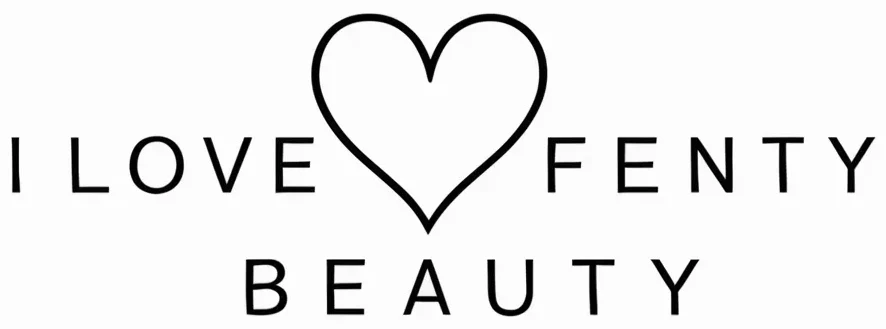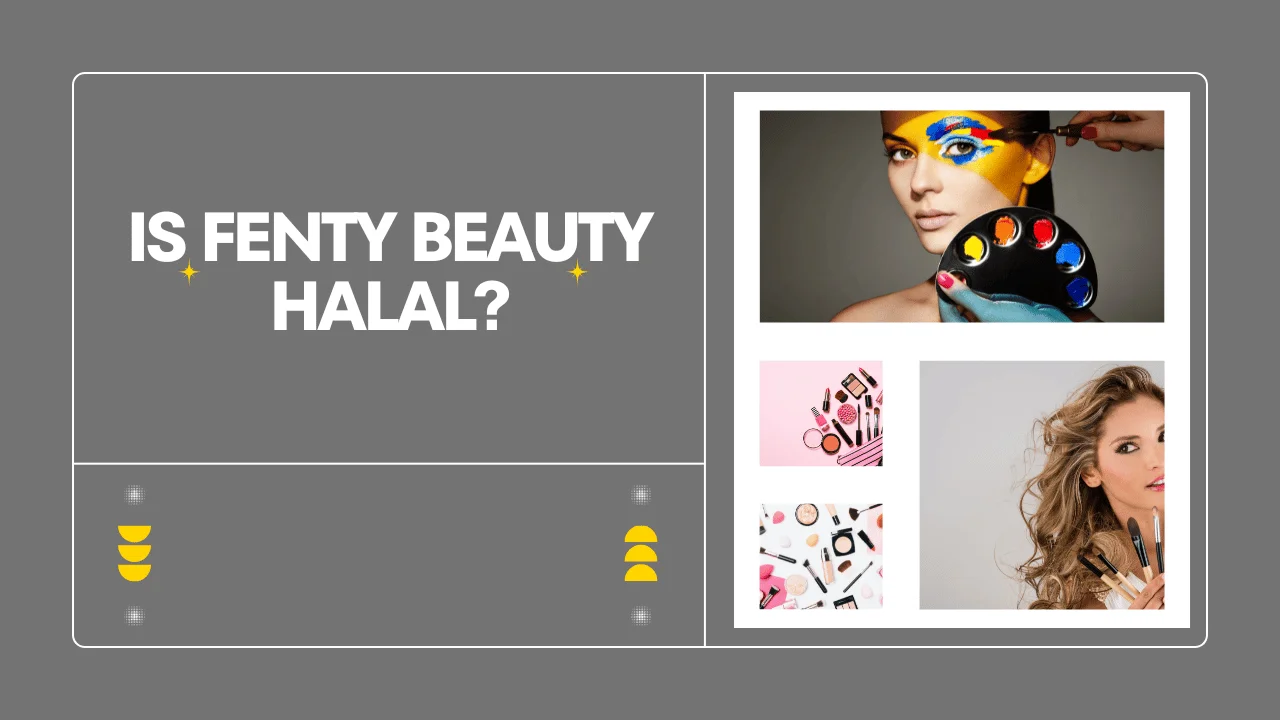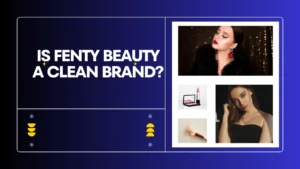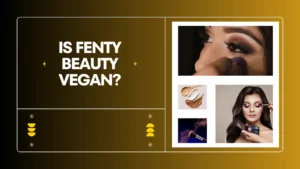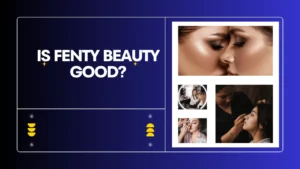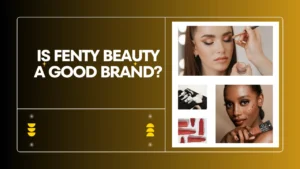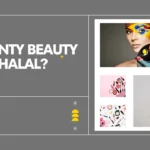You finally found the perfect foundation shade! Fenty Beauty boasts a range that caters to every skin tone, a true game-changer for many Muslim women.
But hold on a second, there’s a crucial factor to consider: Halal certification. For Muslim consumers, makeup isn’t just about looking good, it’s about aligning with their religious beliefs. So, the question arises: Does Fenty Beauty fit the bill?
The global Muslim beauty market is booming, and the demand for Halal-certified cosmetics is soaring.
These products are formulated with ingredients derived from permissible sources and avoid any animal-derived components or alcohol that may be considered non-Halal. But with so many brands on the shelves, navigating the world of halal beauty can be confusing.
This blog post is here to be your guide! We’ll delve into the key aspects of halal cosmetics, analyze the ingredients in Fenty Beauty products, and explore consumer experiences.
By the end, you’ll be equipped to make informed choices about your beauty routine and find makeup that complements both your style and your faith.
Contents
- 1 Understanding Halal Certification
- 2 Analyzing Fenty Beauty’s Ingredients
- 3 Fenty Beauty’s Stance on Halal Certification
- 4 Halal Alternatives and Considerations
- 5 The Future of Halal Beauty
- 6 Conclusion
- 7 FAQ’s
- 7.0.1 Is Fenty Beauty halal-certified?
- 7.0.2 What are the key ingredients to look for in halal cosmetics?
- 7.0.3 How can I find halal-certified beauty products?
- 7.0.4 What are the challenges in the halal beauty industry?
- 7.0.5 How can I create my own halal beauty products?
- 7.0.6 What are the benefits of using halal cosmetics?
Understanding Halal Certification
alal certification ensures that products comply with Islamic dietary laws. For cosmetics, it means the products are free from ingredients derived from haram (forbidden) sources, such as pork or alcohol.
Halal certification authorities verify that products meet strict guidelines and are produced in hygienic conditions.
Key considerations for halal cosmetics include:
- Ingredient sourcing: Ensuring that ingredients are sourced from permissible sources and do not contain any animal-derived components that are not halal.
- Manufacturing process: Ensuring that the manufacturing process is clean and free from contamination with non-halal substances.
- Packaging and labeling: Ensuring that packaging materials are halal-compliant and that the product is clearly labeled as halal.
Analyzing Fenty Beauty’s Ingredients
While Fenty Beauty has gained popularity for its inclusive beauty philosophy, it’s important to note that the brand does not explicitly claim to be halal-certified. Some of the ingredients used in Fenty Beauty products, such as alcohol, may not be considered halal by all Muslim consumers.
Alcohol, in particular, can be derived from both halal and haram sources. It’s crucial to check the specific source of alcohol used in Fenty Beauty products to determine their halal status.
Fenty Beauty’s Stance on Halal Certification
Fenty Beauty has not made any official statements regarding its products being halal-certified. However, the brand has focused on inclusivity and diversity, which is a positive step towards catering to a wider range of consumers, including Muslim consumers.
Consumer reviews and discussions on social media platforms often highlight the need for more clarity and transparency from beauty brands regarding their halal status.
Halal Alternatives and Considerations
For Muslim consumers seeking halal-certified beauty products, there are several options available:
- Dedicated Halal Beauty Brands: Many brands specialize in producing halal-certified cosmetics, ensuring that their products meet Islamic guidelines.
- DIY Halal Cosmetics: Creating homemade cosmetics using natural, halal-certified ingredients can be a great option for those who want complete control over the ingredients.
- Consulting with Religious Authorities: Consulting with local religious authorities or Islamic scholars can provide guidance on the halal status of specific products and brands.
The Future of Halal Beauty
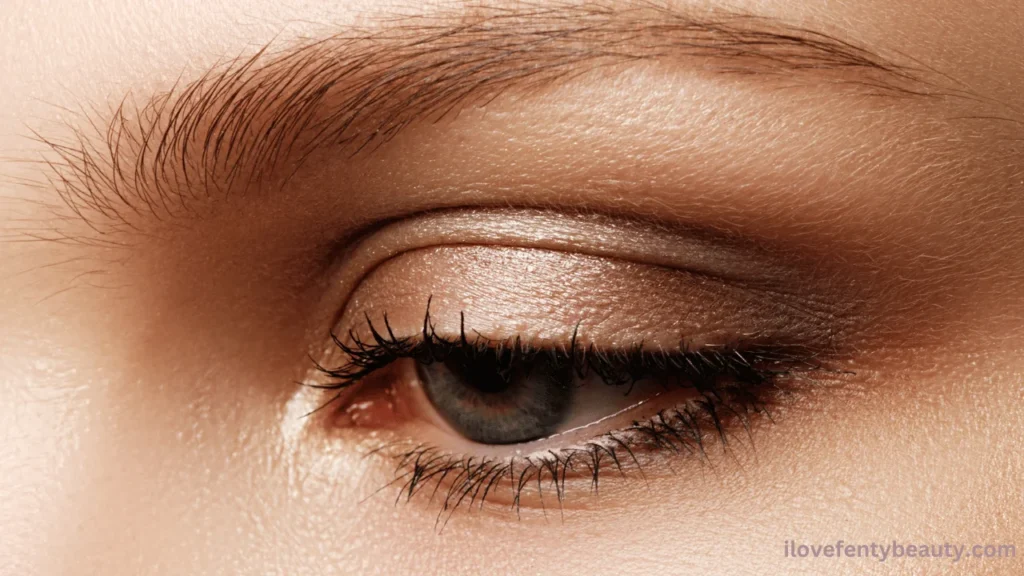
The global demand for halal beauty products is steadily increasing. As Muslim consumers become more discerning, brands are recognizing the potential of this market.
We can expect to see more brands offering halal-certified products in the future.
The beauty industry is also embracing technology and innovation to develop new and improved halal products. This includes using advanced formulations, sustainable ingredients, and innovative packaging solutions.
Conclusion
While Fenty Beauty has made significant strides in the beauty industry, it’s important for Muslim consumers to carefully consider the halal status of its products.
By researching ingredients, consulting with religious authorities, and exploring halal-certified alternatives, consumers can make informed choices that align with their religious beliefs.
The future of halal beauty is promising, with increasing awareness and demand for halal-certified products. As the industry continues to evolve, we can expect to see more brands offering a wider range of halal-compliant cosmetics.
FAQ’s
Is Fenty Beauty halal-certified?
Fenty Beauty has not explicitly stated that its products are halal-certified. Therefore, it’s essential to check the specific ingredients of each product and consult with religious authorities for a definitive answer.
What are the key ingredients to look for in halal cosmetics?
Halal cosmetics should be free from ingredients derived from non-halal sources, such as pork, lard, or alcohol from non-halal sources. It’s important to check the product labels carefully.
How can I find halal-certified beauty products?
Look for products with halal certification logos or seek recommendations from Islamic organizations or online communities. Additionally, many online retailers specialize in halal beauty products.
What are the challenges in the halal beauty industry?
The halal beauty industry faces challenges such as ensuring the halal status of ingredients, maintaining strict manufacturing processes, and complying with different regional regulations.
How can I create my own halal beauty products?
You can create DIY halal cosmetics using natural, halal-certified ingredients. However, it’s important to research and follow proper procedures to ensure the safety and efficacy of homemade products.
What are the benefits of using halal cosmetics?
Halal cosmetics are often formulated with natural ingredients and are free from harmful chemicals. They are also produced in hygienic conditions, ensuring product safety.
